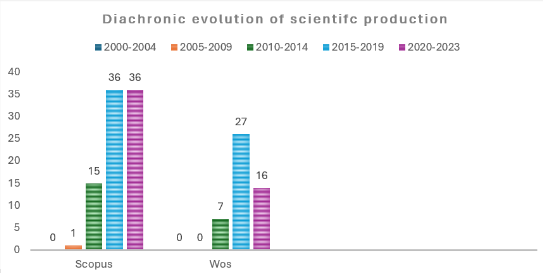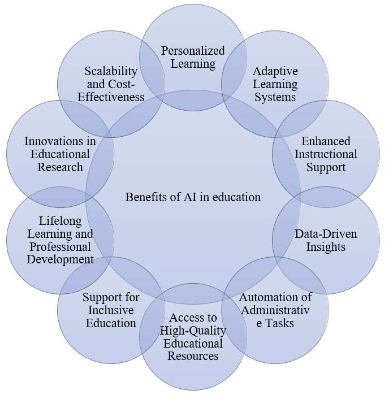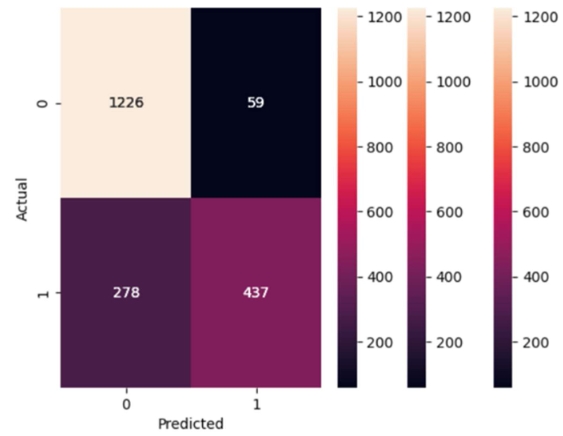Situating inservice teacher training in reform community of developing holistic competence to engage practice
Abstract
This article investigates the situating of inservice teacher training (TT) in teaching-learning, education, and other sector reform communities for developing holistic competence to engage practice. It vignettes a holistic inservice TT resilience to situate in an often transient reform community of developing capacity to engage practice, including competence-based education (CBE) reform that often spews vague ideas in pieces amid low incentive and commitment to undergo practice. To assist, this article adopts the situated learning lens to investigate the extent to which contextualising inservice TT in authentic teaching-learning reform community resources develops competence to engage practice. In this holistic regard, the article mixes text, interview, and questionnaire methods involving 420 Cameroon inservice TT-CBE reform community subjects as part of the global education-for-all-practice reform flow. From findings, few teachers undergo narrow inservice training and lead few partners in reform oration, resenting few means and evading complex teaching-learning reform community practices. Inservice TT’s bare oration of public education policy and reform community changes prepares teachers to facilitate teacher-centred acquisition of less competence than what learners need to engage practice. The article opines ongoing inservice TT preplanning-research, onsite activity, and outcome sustainability themes to further situate in authentic reform community resources to develop holistic competence to engage complex practice.
References
[1]Lave J., Wenger E. Situated learning: Legitimate peripheral participation. Cambridge university press; 1991. https://search.worldcat.org/title/1025207308
[2]Peláez, O., & Usma, J. The crucial role of educational stakeholders in the appropriation of foreign language education policies: A case study. Profile Issues in Teachers Professional Development; 2017; 19(2): 121-134. https://doi.org/10.15446/profile.v19n2.57215
[3]Dhungana, P., Luitel, B. C., Gjøtterud, S., & Wagle, S. K. Context-responsive Approaches of/for Teachers’ Professional Development: A Participatory Framework. Journal of Participatory Research Methods; 2021: 2(1), 18-69. https://doi.org/10.35844/001c.18869
[4]Zeichner, K. Interview with Ken Zeichner: Current challenges and future possibilities for teacher education. Asia-Pacific Journal of Teacher Education 2022; 50(2): 130-143. https://doi.org/10.1080/1359866X.2022.2045472
[5]Korthagen, F. A. Situated learning theory and the pedagogy of teacher education: Towards an integrative view of teacher behavior and teacher learning. Teaching and Teacher Education 2010; 26(1): 98-106. https://doi.org/10.1016/j.tate.2009.05.001
[6]Kettle, M., Heimans, S., Biesta, G., & Takayama, K. Calls to action for teacher education research and practice: voices from the field. Asia-Pacific Journal of Teacher Education 2022; 50(2): 115-117. https://doi.org/10.1080/1359866X.2022.2048464
[7]Ford K. Competency-based education: History, opportunities, and challenges. UMUC Center for Innovation in Learning and Student Success 2014: p. 10-24. https://doi.org/10.13140/RG.2.1.4679.0885
[8]Li, Y., & Dervin, F. Introduction: Contextualising teacher continuing professional development in the ‘miracle’ of Finnish education. In continuing professional development of teachers in Finland. Palgrave Macmillan, Cham; 2018. p. 1-28. https://doi.org/10.1007/978-3-319-95795-1_1
[9]Bernhard, G., Franeta, S., Girardi, A., McClendon, J., Mwase, G. C., Simon, P., & Yung, R. Contextualising adult education instruction to career pathways. Texas Education Agency; 2013. https://tcall.tamu.edu/docs/ContextualizatingAdultEdInstructionCareerPathways.pdf
[10]Ngwa, E. S., & Mekolle, P. M. Public policy on education in contemporary Cameroon: Perspectives, issues and future directions. European Journal of Education Studies 2020; 7(8): .187-204. https://doi.org/10.46827/ejes.v7i8.3203
[11]Wiysahnyuy, L. F. The competency based approach in Cameroon public secondary schools: Modes of appropriation and constrains. International Journal of Humanities Social Sciences and Education (IJHSSE) 2021; 8(1): 92-103. https://doi.org/10.20431/23490381.0801011
[12]Hitipeuw I, Murwani FD, Pali M. Research on Factors that Influence College Academic Performance: A Structural Equation Modelling Approach. European Journal of Educational Research. 2024; 12(1):537-549. https://doi.org/10.12973/eu-jer.12.1.537
[13]Anderson-Levitt, K. Global flows of competence-based approaches in primary and secondary education. Cahiers de la recherche sur l’éducation et les savoirs 2017; (16) : p. 47-72. https://doi.org/10.4000/cres.3010
[14]O'Neill, D. Declassing the Academy. Journal of Class and Culture 2022; 1(1): 3-11. https://doi.org/10.1386/jclc_00001_2.
[15]McCowan, R.J. Origins of Competency-Based Training. Online Submission; 1998. https://eric.ed.gov/?id=ED501710
[16]Roegiers, X. L'approche par compétences en Afrique francophone: quelques tendances (IBE Working Papers on Curriculum Issues no. 7). UNESCO-IBE ; 2008. https://policycommons.net/artifacts/8879784/lapproche-par-competences-en-afrique-francophone/9731375/
[17]Elfert, M. UNESCO, the Faure report, the Delors report, and the political utopia of lifelong learning. European Journal of Education 2015; 50(1): 88-100. https://doi.org/10.1111/ejed.12104
[18]Jonnaert, P. Compétences et socioconstructivisme: un cadre théorique. Armando Editore; 2009. https://www.deboecksuperieur.com/ouvrage/9782804134587-competences-et-socioconstructivisme
[19]Tchombe, T. M. Progressive transformative teacher education in Cameroon. Educational Leadership and Management Studies 2014; 33(1): 23-32.
[20]Lim, J., Fickel, L., & Greenwood, J. Meaningful teacher accountability through professional inquiry: A narrative interpretation of one teacher’s experience. Asia-Pacific Journal of Teacher Education 2022; 50(2): 202-214. https://doi.org/10.1080/1359866X.2021.1914319.
[21]Geletu, G. M., Mekonnen, D., & Mekonnen, G. T. Contextualisation of theory and practices of teachers’ effective professional development features in primary schools of Oromia regional state, Ethiopia. Journal of Education, Society and Behavioural Science 2021; 34(11): 121 132. https://doi.org/10.9734/JESBS/2021/v34i1130372
[22]Jeannin, L., & Hallinger, P. Exploring the need to contextualise professional development programmes for university lecturers: A case study in Thailand. The Independent Journal of Teaching and Learning 2018; 13(2): 98-112. https://hdl.handle.net/10520/EJC-1222586e9e
[23]King, K. P., Heuer, B. P., & Jakuta, M. O. Contextualising professional development in adult learning with urban alternative high schools. Leadership, Counseling, Adult, Career and Higher Education Faculty Publications. 237; 2005. https://newprairiepress.org/aerc/2005/papers/25
[24]Hintz, K., & Genareo, V. Suggestions for implementing first year experience learning communities in teacher education programs. Learning Communities: Research & Practice 2017; 5(1)2: p. 1-10. http://washingtoncenter.evergreen.edu/lcrpjournal/
[25]Virkkula, E., & Nissilä, S. P. In-service teacher learning through integrating theory and practice. SAGE Open 2014; 4(4). https://doi.org/10.1177/2158244014553399
[26]Kumar, R. Research methodology: A step-by-step guide for beginners. Sage; 2018. http://digital.casalini.it/9781526457080
[27]Krejcie, R. V., & Morgan, D. W. Determining sample size for research activities. Educational and Psychological Measurement 1970; 30(3): 607-610. https://doi.org/10.1177/001316447003000308
[28]Negi, T., & Jain, S. (2021). Transformative effect of profession change: An explanatory framework. Journal of Transformative Learning, 8(2), 1-15. https://jotl.uco.edu/index.php/jotl/article/view/290.
[29]McAlister, A. M., Lee, D. M., Ehlert, K. M., Kajfez, R. L., Faber, C. J., & Kennedy, M. S. Qualitative coding: An approach to assess inter-rater reliability. ASEE Annual Conference & Exposition June;2017. https://peer.asee.org/28777
Copyright (c) 2024 Nji Clement Bang, Florence Ndfuto Takop

This work is licensed under a Creative Commons Attribution 4.0 International License.









